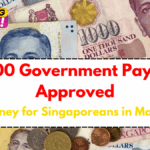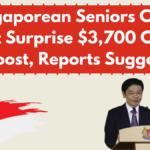In direct response to the sweeping tariffs imposed by the United States, Singapore has unveiled a new national task force to support its economy. On May 8, 2025, Prime Minister Lawrence Wong announced the formation of this task force, marking a decisive move to safeguard Singaporean businesses and workers amid growing international trade uncertainty.

Task Force Composition and Objectives
Spearheaded by Deputy Prime Minister and Minister for Trade and Industry Gan Kim Yong, the task force will include leaders from key economic institutions. Participants represent agencies such as the Singapore Business Federation (SBF), the Singapore National Employers Federation (SNEF), and the National Trades Union Congress (NTUC).
The task force has three primary objectives:
- Addressing short-term economic uncertainties.
- Strengthening national economic resilience.
- Adapting to a fast-changing global trade landscape.
Prime Minister Wong emphasized the urgency of proactive adaptation, citing the growing volatility in international commerce.
Immediate Impacted Sectors
Several sectors in Singapore are already facing increased strain due to the new tariffs. Key industries affected include:
| Sector | Nature of Impact |
|---|---|
| Manufacturing | Decline in export competitiveness |
| Wholesale Trade | Disrupted global supply chain dependencies |
| Financial Services | Decreased investor confidence |
| Insurance | Higher global risk premiums |
These sectors are closely tied to international demand and are highly sensitive to global policy shifts, making them the first to feel the impact.
Economic Forecast and Possible Recession
While Singapore may narrowly avoid a technical recession in 2025, the economy is clearly under pressure. The Ministry of Trade and Industry is currently reviewing its original growth forecast of 1% to 3%, with a likely downward revision anticipated. The combination of reduced trade activity and global instability necessitates cautious economic planning in the months ahead.
Breakdown in Global Trade Norms
Prime Minister Wong warned that the new US tariffs represent more than just economic protectionism—they signify a retreat from decades of rules-based globalization. The move challenges the core tenets of the World Trade Organization (WTO) and risks sidelining smaller nations through the rise of selective bilateral agreements.
Growing Risk of a Global Trade War
Wong acknowledged the increasing threat of a global trade war. While Singapore will refrain from retaliatory tariffs, other major economies, including China and the European Union, are preparing to respond. These retaliations, even if partial, may escalate the tension and deepen global economic instability.
Declining Investor Confidence
The new tariff environment has led to a noticeable dip in both domestic and foreign investor confidence. Singaporean authorities are actively consulting with stakeholders across sectors to mitigate potential fallout. Some businesses are holding back on capital investments, and concerns over stranded assets are rising, especially in sectors relying on cross-border logistics.
A Resilient Path Forward for Singapore
Looking ahead, Singapore is focused on reinforcing its standing as a reliable and forward-looking global business hub. This includes enhancing trade partnerships with like-minded economies and promoting stronger ASEAN integration. The government is working closely with regional partners, especially Malaysia, to ensure Southeast Asia remains a stable and attractive economic region.
Budget 2025: Immediate Relief and Economic Stimulus
To cushion the immediate economic effects, Budget 2025 introduces several targeted measures:
- Community Development Council (CDC) vouchers to ease household expenses
- SG60 vouchers for general public support
- USave rebates for utility bill relief
- Enhanced ComCare Assistance for lower-income households
- Corporate income tax rebates to support business sustainability
These measures aim to buffer families and companies from the direct impact of inflation and decreased trade activity.
Government’s Commitment to Further Action
The government has affirmed its readiness to introduce additional measures as needed. Agencies continue to monitor economic indicators and maintain close engagement with businesses to offer real-time, tailored support. Singapore remains determined to safeguard its long-term economic health through decisive, flexible governance.
Conclusion
Singapore’s response to the 2025 global trade disruptions is comprehensive and forward-thinking. By forming a dedicated task force, implementing targeted relief through Budget 2025, and reinforcing global partnerships, the nation is positioning itself to weather the storm. As the international trade environment continues to shift, Singapore is committed to resilience, adaptability, and inclusive growth.
FAQ
What is the purpose of the new national task force?
The task force aims to support businesses and workers in Singapore by addressing economic uncertainties caused by the new US tariffs, strengthening economic resilience, and adapting to global trade changes.
Who is leading the task force?
Deputy Prime Minister and Minister for Trade and Industry Gan Kim Yong will head the task force.
How will Budget 2025 help households?
Budget 2025 includes CDC vouchers, SG60 vouchers, and USave rebates to help households manage living costs. It also enhances ComCare support for vulnerable groups.
Is Singapore heading into a recession?
While Singapore is expected to avoid a technical recession, economic pressures remain high. The government is reviewing its initial growth forecast due to ongoing global instability.
What steps are being taken to protect investments?
Singapore is actively engaging with local and multinational businesses to understand their concerns and provide tailored support to maintain investment momentum.
For More Information Click Here



